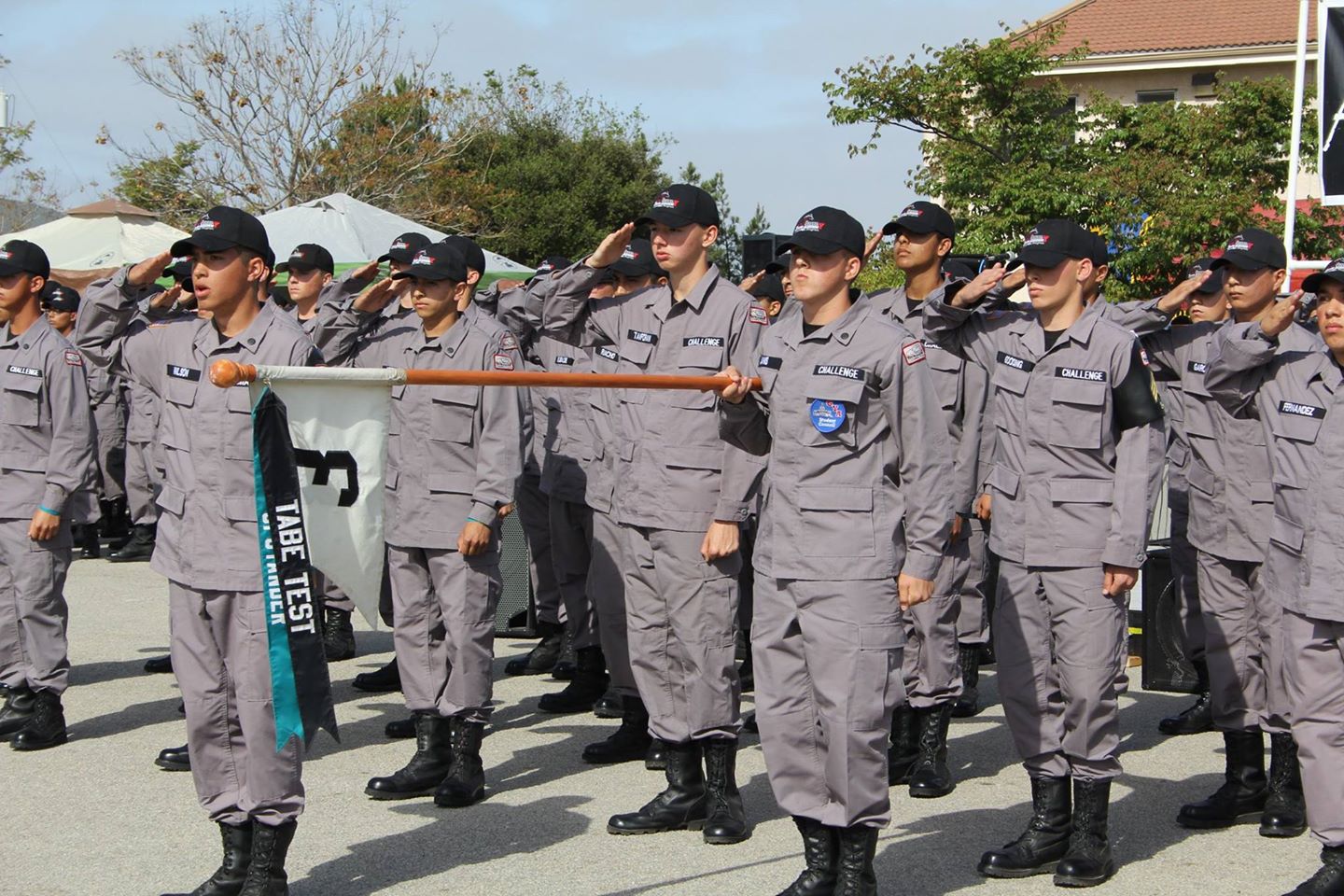|
Community College Admission requirements High school diploma or equivalency Degree Earned Most attend a CC to get an associates degree (typically takes about 2-3 yrs)
|
Cal State Universities Admission Requirements You will qualify for regular admission as a first-time freshman if you are a high school graduate The CSU requires first-time freshman applicants to complete, with a grade of C or better in each course, the following… English 4 years Remember if you have questions about this you can always ask teachers or your advisor if you have all the right classes done. CSU campuses (where are they located?): California State University Chico, Sonoma, Sacramento, San Fran, San Jose, Monterey, Fresno, Cal Poly, Northridge, Bakersfield, Los Angeles, Fullerton, Long Beach, San Diego |
|
University of California Admission Requirements If you're interested in entering the University of California as a freshman, you'll have to satisfy these requirements: Complete a minimum of 15 college-preparatory with at least 11 finished prior to the beginning of your senior year. The 15 courses are: History/social science (2 years) Earn a grade point average (GPA) of 3.0 or better in these courses with no grade lower than a C. UC campuses (where are they located?): University of California…Berkeley, Davis, Irvine, Los Angeles, Merced, Riverside, San Diego, San Francisco, Santa Barbara, Santa Cruz |
Private Colleges Independent schools or non-state schools! At many private schools students may be able to get a scholarship, which makes the cost cheaper. The requirements: depending on a talent the student may have e.g. sport scholarship, art scholarship, academic scholarship, music scholarship You can receive financial support through scholarships, FAFSA, other financial aid provided by state and federal government, grants from the school itself, loans, and work study. (All combined that could be a lot of financial support!) Some of them in the area are…Westmont College (in SB), Point Loma University (in San Diego), Cal Lutheran, Biola (Los Angeles Area), Azusa Pacific, Loyola Marymount (Los Angeles)
|
Differences between CSU’s and UC’s
- CSU cost less than UC’s
- There are 23 CSU’s to choose from and 12 UC’s to choose from
- Acceptance for CSU’s: lower GPA (3.0), SAT reasoning test
- Acceptance for UC’s Higher GPA (3.5) Strong personal statements (essays), SAT plus the extra SAT subject tests
- At CSU’s the teachers are less focused on research and more focused on getting to know the students
- UC teachers are focused on research outside of the classroom and may not be as helpful
Job Corps
Job Corps is a no-cost education and vocational training program administered by the U.S. Department of Labor that helps young people ages 16 through 24 improve the quality of their lives through vocational and academic training. For eligible young people at least 16 years of age that qualify as low income, Job Corps provides the all-around skills needed to succeed in a career and in life. It offers hands-on training in more than 100 career technical areas, including: automotive and machine repair, construction, finance and business services, health care, hospitality, information technology, manufacturing, renewable resources, and many more. Job Corps also offers the opportunity to earn a high school diploma or a GED for those youth who don't have either. For youth who already have a high school diploma, Job Corps can help them prepare for college through partnerships with local colleges. Resources are also available for English Language Learners. Courses in independent living, employability skills, and social skills are offered to all Job Corps students in order to help them make the transition into the workplace.
AmeriCorps
AmeriCorps is an opportunity to make a big difference in your life and in the lives of those around you. It’s a chance to apply your skills and ideals toward helping others and meeting critical needs in the community. AmeriCorps is open to U.S. citizens, U.S. nationals, and lawful permanent resident aliens age 17 and older. Members serve full- or part-time over a 9- to 12-month period, or during the summer. AmeriCorps is made up of several different programs - AmeriCorps State and National, AmeriCorps VISTA, and AmeriCorps NCCC - each with its own focus and structure.
If you are:
- over age 17
- looking to put your idealism into practice
- interested in earning money to pay for college or to pay off student loans
- eager to gain new skills—or to apply the ones you already have
- interested in helping others and making a difference in your community
Then you should look into the thousands of AmeriCorps State and National programs that are meeting community local needs in education, the environment, public health and safety, and disaster preparedness and response.
If you are:
- concerned about poverty in America
- at least 18 years old
- either a college graduate or have a few years of work experience and skills
- an organizer, a resource-builder, a self-starter
- patient enough to work on a project that might not show results quickly
- interested in helping a low-income community establish a new program or enhance an existing program to help itself—and knowing it will continue long after you're gone
- comfortable staying in one community for the entire year
Then you might consider joining AmeriCorps VISTA
If you are:
- between 18 and 24 years old
- seeking hands-on work in one of the following areas: clearing trails, providing disaster relief, renovating housing, tutoring kids, or other active assignments
- interested in doing a variety of projects
- looking to relocate and travel during your service term
- willing to live in a dorm
- excited about living and working with a close-knit team
Then you might consider joining AmeriCorps
For more information on how to join visit: https://www.americorps.gov/
California Conservation Corps
The California Conservation Corps is a state agency that puts together young people and the environment to the benefit of both.
What are Corpsmember?
Young men and women between ages 18 and 25- sign up for a year of working outdoors to improve California’s natural resources. They also assist with emergency response: fighting fires, floods, earthquakes, and pest infestations.
ARE YOU…
- 18-25 years of age
- Not on parole or formal or supervised probation
- Free of any convictions for a violent or felony drug crime
- A California resident
- Able to successfully pass fingerprint & background check,
- Willing and able to work outdoors in all types of weather
- Willing and able to respond to emergencies with your
- Willing and able to participate in the CCC education drug test, physical exam and training and conditions crews and be away from home or your center two weeks or longer program
If you answered yes to the questions above you are ready to become a Corpsmember!
More than 110,000 young men and women have participated in the CCC, with approximately 3,000 hired each year. Corpsmembers must be between the ages of 18 and 25, California residents and not on probation or parole. At the present time, the CCC is about 74% men, 26% women. They are hired from all over the state and reflect the diversity of California. The top three counties where Corpsmembers come from: San Diego, Los Angeles and San Bernardino. The average length of stay is about nine months.
Locations
The CCC has 27 residential and nonresidential locations throughout the state.
It is the only state program with year-round residential centers.
Natural Resource Work
Since 1976, the CCC has provided 65 million hours of natural resource work throughout the state. The CCC is a cost-effective labor force, working for more than 250 local, state and federal agencies each year. Statewide, crews tackle more than 900 projects annually, generating more than $26 million for the CCC.
Volunteering
The benefits for you
- Developing a new skill
- Discovering a new interest
- Work experience: Can lead to a Job!
- Experience to put on your resume
- Internal motivation
- A sense of achievement
- It will most definitely boost your career opportunities: 73% of employers will hire someone with volunteer experience, over someone without. 94% of employees who volunteer to learn a new skill benefit by either getting their first job, improving how much they get paid, or getting promoted
Places in general that are good to volunteer for:
- Food banks
- Homeless shelters
- Pet shelters
- Tutoring centers
- A school club that is volunteer based
- Hospitals
Places in Santa Barbara! Just call and ask if they have any volunteer opportunities available.
- Foodbank of SB county! 805 967 5741
- Santa Barbara Zoo! 805 962 5339
- Churches! (call any one of them and ask if they have any opportunities for you!)
- The public library
- Cottage Hospital
- DAWG- a no-kill animal shelter
- Join the Santa Barbara Youth Council!
There are a lot of opportunities! You can even research it on your own if none of these interest you. Just call and ask if they have opportunities available!
Vocational Schools
A vocational school is different from a four year college. Instead of taking four years to get a degree, a vocational school will let you get it done in two or less. It’s not so much about building you up to fit a bunch of different careers but more like providing you with specific skills to do a particular type of job, like construction or massage therapy.
Some general fields of study for vocational schools.
- Dental Assistant
- Optometric Assistant (eye doctor’s assistant)
- Fashion designer
- Culinary arts specialist (chef, baker)
- Barber
- Funeral Service Coordinator
- Cosmetician
- Electrician
- In Aviation (flying planes!)
- In Construction
- Travel agent
- Pharmacist
- In computer maintenance/repair
- Architect
- Designer
- Massage Therapist
- Licensed Vocational Nurse
- Certified Nursing Assistant
Some General Requirements
- A High School Diploma
- Fill out an application
- Go to an interview
- The completion of at least one standardized test. Usually either the Career Programs Assessment (CPA) or the American College Test (ACT)
- Possibly some previous experience in the field (an internship or volunteer work can help you with this!) Extra experience always helps no matter what!
Some vocational Schools in Santa Barbara: Hypnotherapy Training Institute, Spitfire Aviation, Santa Barbara Business College, Paul Mitchell The School, Brooks Institute of Photography, Holcyon Ctr, and Trike Buggy Inc.
Internships/Apprenticeships
Generally, an internship works as an exchange of services for experience between the student and his or her employer. Students can also use an internship to determine if they have an interest in a particular career, create a network of contacts, or gain school credit. Some interns also find permanent, paid employment with the companies in which they interned. Thus, employers also benefit as experienced interns need little or no training when they begin full-time regular employment.
An apprenticeship is a system of training a new generation of practitioners of a structured competency based set of skills. Apprenticeships ranged from craft occupations or trades to those seeking a professional license to practice in a regulated profession. (more helpful if looking into going to a vocational school)
An internship may be paid, unpaid or partially paid. Internships may be part-time or full-time—typically, they are part-time during the university year and full-time in the summer. They usually last 6–12 weeks, but can be shorter or longer, depending on the company involved. The act of job shadowing may also constitute interning.
Paid internships are usually in these fields:
- Medical
- Architecture
- Science
- Engineering
- Law
- Business (especially accounting and finance)
- Technology
- Advertising fields.
Unpaid/volunteer internships are usually in these fields…
- Non-profit organizations
- Charities
- Think tanks (political organizations)
- Start-up businesses
- Churches
How to get an internship
1) Contact a place that interests you and see if they have any opportunities
2) Have a resume ready! (includes any work experience, classes you have taken that seem to apply to the internship)
3) Possibly set up an interview, prepare for questions they might ask you, go to the interview, and hope for the best)
Online Programs
Pros
- You will work with classmates not only from all over the U. S. but could be around the world.
- No discrimination among students due to race, sex, sexual orientation, religion, nationality, age, dress, physical appearance, etc.
- Equal participation from all classmates and the most outgoing student will not monopolize the discussion.
- These courses are better for those people who are introverted as well as who learn through visual cues and require more time in understanding the material.
- Synergy: High level of dynamic interaction between the instructor and students as well as among the students themselves. Ideas and resources are shared, and continuous synergy will be generated through the learning process as each individual contributes to the course discussions and comments on classmates’ work.
- Creative teaching: with the interactive learning environment may contribute to self-direction and critical thinking. Especially the nature of the semi-autonomous and self-directed world of the virtual classroom makes innovative and creative approaches to instruction even more important.
- Also, convenient, less expensive, and technology based so you have access from any computer to take your classes.
Cons
- Limited social interaction: Especially in self-paced courses – difficult to develop relationships with classmates
- Possibility of limited local networking opportunities
- Most of the communication through e-mail, chat room or discussion groups, but no offline get-together
- No personalized attention from instructor with regards to face-to-face interactions and feedbacks
- No campus atmosphere to create social interaction
- There may be an additional cost of high-speed Internet.
- Have to Plan and adjust your studying schedule around instructor’s assignment due date.
- If a student is scheduling to study in the night then he/she will have to wait for response from the instructor or classmates by next day.
- Effectiveness of Assessment: Most educators agree that memory testing is not the best measure of learning in any environment, but classroom tools are difficult to apply. It is difficult to measure program results. Question remains: are students learning what instructor is saying that they should be learning?
- Problematic for Instructors: As software is getting more and more advanced, instructors are constantly trying to learn how to keep up.
- Student must be self-motivated and disciplined to progress through his/her program in a timely manner.
Expenses: $7500/semester plus savings in gas and housing. Remember you can also still get financial aid in the form of grants, loans, and scholarships etc. even for online courses.
Grizzly Youth Academy
If you are 16 to 18 years of age, and want to make a change in your life, this program is for you. Be a part of this great FREE program. Change your life... and be proud of yourself. For information regarding YOUR future, contact the Admissions Office at 1-800-926-0643. Get your application in ASAP! We have classes starting every January and every July.
The Grizzly Youth Academy is a Charter High School, run by the California National Guard and chartered through the San Luis Obispo County Office of Education. The academy is structured as a "military school" to promote an academic environment that helps develop leadership, cooperation, and academic skills, while improving self-esteem, pride, and confidence.
Grizzly Youth Academy is located on the beautiful central coast of California at Camp San Luis Obispo. This National Guard training base is mid-way between San Francisco and Los Angeles. The weather is moderate year-round, with temperatures ranging from the mid-40's in the winter to the mid-80's in the summer.
Three phases of the program
1) Pre challenge phase (2 weeks)
- To make sure the students are prepared
2) Challenge phase (20 weeks)
- Academics
- Physical fitness
- Counseling
- Life skills training
- Team Building
- Live on a military base
3) Post residential phase (1 year)
- In the community
- Provided with a mentor who is trained, screened, and matched
In order to enroll in Grizzly Youth Academy, prospective cadets must meet all of the following requirements:
- Be a citizen or legal resident of the United States and resident of California.
- 16 to 18 years of age on the first day of admission.
- A high school drop-out or at risk of dropping out or seriously behind in credits.
- *Drug Free: Students will be drug tested. Those who fail this test will be sent home. NO EXCEPTIONS
- *No felony adjudications or felony convictions, awaiting trial, or currently in trial proceedings. We can accept those with misdemeanors.
- Physically, mentally, and emotionally capable of completing the program.
- Volunteer to come!
- Committed to making a change in their life.
Certificate Programs
A certificate program is a program of education that results in a certificate of completion rather than general, certificate programs either prepare students to complete a specific task or educate them about one particular aspect of their field. A massage therapist, for example, may complete a certificate program in order to become educated about and be licensed to practice reflexology in addition to massage. On the other hand, a licensed therapist with a Bachelor’s or even a Master’s degree in Psychology may decide to complete a certificate program in Addiction Studies or Institutional Research. These certificate programs would supplement the therapist’s education and prepare her to work in another arena within her profession.
Because certificate programs either replace or supplement degree programs, many people find them useful throughout their careers. Many people have found great professional success by regularly updating their knowledge base. Furthermore, completing certificate programs is now easier than ever. There are numerous online institutions that offer certificate programs. The University of Phoenix, home to one of the largest online campuses, offers certificate programs in the fields of Business, Education, Health Care, and Technology. Many other online universities also offer online certificate programs.
Schools that offer certificate programs in the area: SBCC, Paul Mitchel: The School, American Fitness and Nutrition Academy, National Personal Training Institute, Ventura College, Oxnard College, Pacific Coast Trade School, and Medical Career Services.
Technical Schools
The fields of Information and Computer Technology include a wide variety of trained technical professionals, including those working in network administration, computer forensic/security, hardware/software technicians, computer programming and more. And almost all of these professionals have earned a technical degree from one of the many technical schools available.
Because computer technology has infiltrated nearly every type of organization doing business today, opportunities for skilled and trained computer professionals are abundant, and the environments they work in diverse. Successful professionals in these fields are technical in nature, good at troubleshooting problems and quick to learn new technology. Most specializations require training and/or certification; with this training at hand there are almost limitless professional opportunities.
IT Schools
IT schools contain curriculum that focuses on those programs that are geared toward technical fields. Some example IT degrees and careers include computer science, PC support specialist, video game programmer, and much, much, more! Some information technology schools offer four-year degrees; however, many offer two-year programs where the curriculum focuses narrowly on the skills at hand.
There are a number of benefits associated with attending a technology school. One is that you have the opportunity to take on a skill or trade that may not be available at a larger university. For example, you may want to earn a degree in order to become a certified webmaster, but have a difficult time finding IT programs like this at larger colleges. However, because information technology colleges specialize in skill-based programs, you can very often find the hands-on career training that you can’t locate at the bigger schools. Another benefit of attending a specialized school is that they are often equipped with internship opportunities that put you directly into the workplace of your choice after graduating. Also, tech schools offer the benefit of career improvement to those who are already established in a particular field, but would like to make a move up the ladder. For instance, suppose you have already received a certificate as a webmaster, but are now interested in becoming a database development expert. The education requirements associated with this type of upgrade may not be substantial enough to attend school for more years. It may only require several more classes. Individuals in any IT field can benefit in this way, taking their careers to greater heights with just a little bit more work.
When deciding what type or which IT program you would like to apply to it’s important to consider some of the following factors:
- Coursework
- Cost
- Higher Concentration on Skills
Online IT Programs: ITT Technical Institute (Also has an Oxnard Campus), Keiser University, Walden University, Strayer University, DeVry University
Early Childhood Education Degree
The growing field of early childhood education includes many different job opportunities. Regardless of the position you seek, if you are considering a degree in early childhood education, you should enjoy children and have a strong desire to help them learn and succeed.
Degree Options
Early childhood education courses vary depending on the degree you pursue, but you can expect to take courses in child growth and development, guidance, and theory application.
Many employers require day care workers, preschool teachers, kindergarten, and elementary school teachers to hold at least a certificate or associate degree in early childhood education.
A public elementary school teacher must earn a bachelor's degree or higher.
Those who would like to move up to top-level job opportunities in school administration should earn a master's degree or a PhD in early childhood education.
New career opportunities open up to you at each educational level.
What can you do with an Early Childhood Education Major?
Child Care Worker. Child care workers operate in a variety of settings, most frequently a day care center. As a child care worker, you can expect to help children learn basic concepts, primarily through play. Child care centers are typically open all year long and have opportunities for part or full time employment. There are usually few opportunities for advancement. Though requirements vary from state to state, a high school diploma or its equivalent is usually the only education necessary. For administrative positions, however, a child development certificate or associate degree is generally the minimum.
Preschool Teacher. Preschool teachers typically work with children from age two until they're ready for kindergarten. Teachers are responsible for introducing basic skills and concepts such as colors, numbers, and letters. Again, the primary method for learning is through play. Preschool teachers are usually required to have an associate degree at minimum, but a bachelor's degree will better qualify you for the many opportunities for advancement in a preschool center. You may begin as an assistant teacher and work your way up to teacher, or lead teacher. As a preschool teacher, you can often expect to work part-time. Preschools usually follow a ten-month schedule, with two months off in the summer.
Teacher, Kindergarten or Elementary School. Kindergarten and elementary school teachers teach students skills in the areas of science, math, language, and social studies. They must be able to employ a variety of instructional methods and work with students of all different backgrounds, races, and ethnicities. All states require that public school teachers earn a bachelor's degree and a license from the state in which they teach. An assistant teacher, however, is usually required only to have an associate degree. An assistant teacher functions as the lead teacher's helper in the classroom, often performing duties such as bus attendant and lunchroom attendant. Private school teachers are usually -- but not always -- required to have a bachelor's degree.
Education Administrator. Education administrators oversee the day-to-day operations of a preschool, child care center or school. Typically, an administrator will have a master's degree or a PhD. Administrators oversee staff and curriculum, manage budgets, and ensure that their schools meet all educational standards set forth by their governing body. School administrators typically work year round, even through summer breaks. They are often required to attend nighttime meetings and fundraisers.
Postsecondary Teacher. A postsecondary teacher instructs students pursuing education after high school. Typically, these teachers are college and university faculty. A postsecondary teacher is usually required to have at least a master's degree, as well as related work or other academic experience. In the field of early childhood education, a postsecondary teacher may teach courses for bachelor's degree candidates in early childhood education.
Employment for In Exchange for Room and Board
Families often hire young adults to take care of elderly parents and relatives or young children. A lot of the time, the caretaker lives with the client and receives an hourly wage as well as free room and board. When researching this job option it is important to note several things.
Elderly Care:
- The person may have mobility issues
- The person may need help with simple day-to-day tasks such as cooking, cleaning, and even basic hygiene.
- The person may have a disability.
- The person may have dementia, Alzheimer’s, or a different illness which prevents them from being fully functional.
- The person may need to be transported to and from appointments, grocery stores, and other activities.
- The person may be very independent and only need help with complicated tasks, in which case only light supervision is necessary.
- The individual hiring you will likely have specific directions as to how they want things done with regards to their relative-be ready to be flexible
Child Care:
- There may be more than one child needing care.
- The child may have a disability or medical needs.
- The child may have behavioral issues
- The job may involve driving the child to and from school and various activities.
- The parent will likely have specific directions as to how they want things done with regards to their child- be ready to be flexible.
In general these jobs pay between 12 and 20 dollars an hour and the most common salary is 15 an hour. There are few days off, however you gain invaluable experience, a great resume booster, as well as, free rent!
WIA or Workforce Investment Board Youth Program!
130 East Ortega Street
Santa Barbara, CA 93101
(805) 568–1296
1410 South Broadway
Santa Maria, CA 93454
(805) 614-1550
Call either of these numbers to ask questions and seek out opportunities!
Helps to successfully transition you into adult hood, careers, and further education and training
How? Helping you develop your skills and work experience!
They offer…
- Tutoring, study skills training
- Assistance with educational placement
- Job placement assistance
- Paid and unpaid work opportunities
- Leadership opportunities
- Counseling and guidance
- Job skills training




